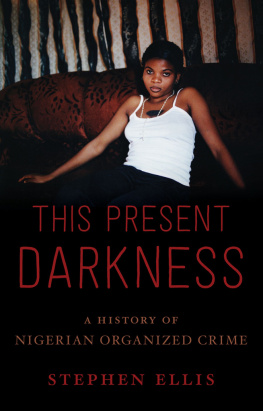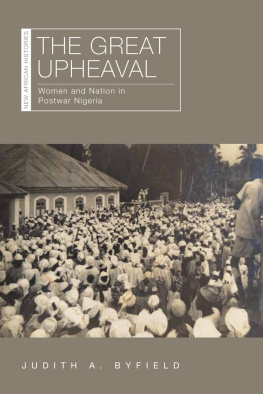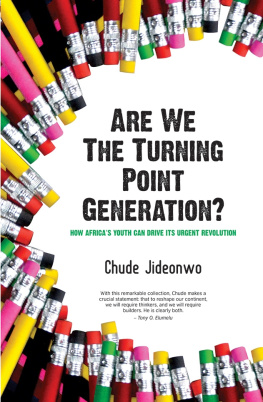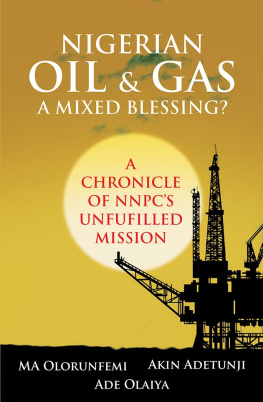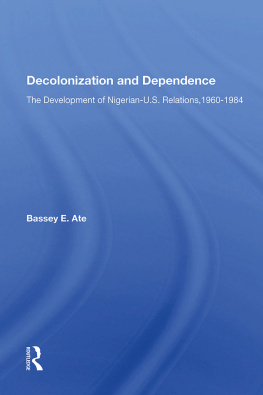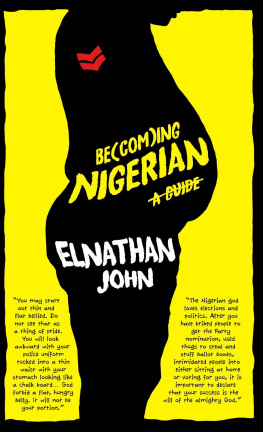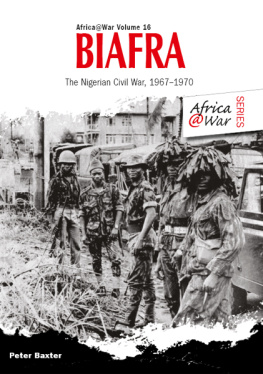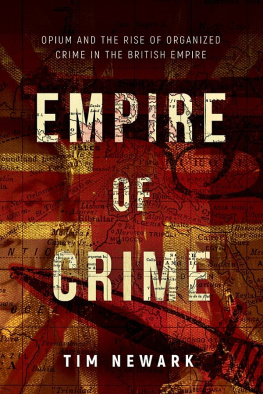THIS PRESENT DARKNESS
STEPHEN ELLIS
This Present Darkness
A History of Nigerian Organized Crime


Oxford University Press is a department of the University of Oxford. It furthers the Universitys objective of excellence in research, scholarship, and education by publishing worldwide.
Oxford New York
Auckland Cape Town Dar es Salaam Hong Kong Karachi Kuala Lumpur Madrid Melbourne Mexico City Nairobi New Delhi Shanghai Taipei Toronto
With offices in Argentina Austria Brazil Chile Czech Republic France Greece Guatemala Hungary Italy Japan Poland Portugal Singapore South Korea Switzerland Thailand Turkey Ukraine Vietnam
Oxford is a registered trade mark of Oxford University Press in the UK and certain other countries.
Published in the United States of America by Oxford University Press
198 Madison Avenue, New York, NY 10016
Copyright Stephen Ellis 2016
All rights reserved. No part of this publication may be reproduced, stored in a retrieval system, or transmitted, in any form or by any means, without the prior permission in writing of Oxford University Press, or as expressly permitted by law, by license, or under terms agreed with the appropriate reproduction rights organization. Inquiries concerning reproduction outside the scope of the above should be sent to the Rights Department, Oxford University Press, at the address above.
You must not circulate this work in any other form and you must impose this same condition on any acquirer.
Library of Congress Cataloging-in-Publication Data is available Stephen Ellis.
This Present Darkness: A History of Nigerian Organized Crime
ISBN: 9780190494315
ISBN: 9780197547984 (e-book)
Printed in the USA
For we do not wrestle against flesh and blood, but against the rulers, against the authorities, against the cosmic powers over this present darkness, against the spiritual forces of evil in the heavenly places.
St Pauls Letter to the Ephesians
For Gerrie

Professor Stephen Ellis, 19532015
CONTENTS
It is a pleasant duty for an author to write an acknowledgements page, listing the people who have helped in the preparation and research of a book that has at last been completed.
In this case, it will be my last book. Accordingly, I would like to mention some of the people who have helped and inspired me in my work on Africa since I first set foot on African soil in 1971.
My first job in Africa was as an English teacher at the excellent Collge Libermann in Douala, where my boss was Father Eric de Rosny. He always showed great kindness to a young Englishman far away from home. Some weekends he took me with him to the Douala townships where he had many friends. I used to sit and listen while they talked about the old days. Looking back, this was the start of my interest in African history. Only gradually did it occur to me what a remarkable man Eric de Rosny wasa Jesuit priest and an initiated healer as well as a successful author.
At university, I followed a course on African history taught by Tony Kirk-Greene, who I must thank for introducing me to the formal study of the subject that became my career.
When I was aiming to do research in Madagascar in the late 1970s, at a time when it was hard to get a visa, I was given valuable help by Simon Ayache. Again, its a story of appreciating more with the passage of timeit was only after learning the ways of bureaucracies that it dawned on me what efforts Simon Ayache had made on my behalf. I am glad that I was able to resume contact with him quite recently, and to thank him formally.
During and after my doctoral studies I came to know two people in Paris who became close friends, but who I have always considered as mentors in their respective disciplines. These were Franoise Raison and Jean-Franois Bayart. Both of them have been an inspiration for decades.
Among my contemporaries, I have enjoyed close friendships with Oyama Mabandla, Solofo Randrianja and Tibil Dram, and I have learned an enormous amount from them, more than they can realise.
I must also thank Michael Dwyer, who has published many of my books and has become more than a publisher, a friend.
I have learned most of all from Gerrie, my partner for close to three decades and herself an expert in the study of religion. Our endless conversations about the spirit world have fascinated me and have helped me not only better to understand Africa, but to understand the world.
Stephen Ellis
Amsterdam, July 2015
Stephen Elliss rigour as a researcher and writer was matched by an unflinching search to understand Africa and its historical vicissitudes and to explain these to the reader. In pursuit of these goals he worked the archive, spent years tramping the continent, from South Africa to Liberia to Madagascar, and interviewed hundreds of informants, from apartheid-era spooks and humble rural pastors to notorious faction fighters and men now wealthy from the profits of crime.
Aside from the information he gleaned from such encounters, Stephen was fascinated by his interlocutors, above all by the dilemmas they were presented with in their lives and how they dealt with them. What mattered to him as an historian and analyst was the profound impact on peoples lives of the social and political factors that shaped Africa leading up to, during and after colonialism.
Another constant theme in Stephens writing on and engagement with Africa was the metaphysical. In this he was regarded by some as unorthodox, but his fascination with spirituality and the ethics of livingabove all how the temporal world was perceived and responded toinformed his intellectual trajectory, his private life and bolstered his determination never to succumb to the vagaries of academic fashion.
After having had the pleasure and honour of working with Stephen Ellis on five books, one of which, on Charles Taylors murderous regime in Liberia, precipitated a lengthy legal case, it is with great sadness that I know that this, his scrupulously researched history of Nigerian organised crime, will be his last.
I will miss learning from him, I already miss his friendship.
Stephen Ellis had been ill for several years before finishing the manuscript of This Present Darkness, in July 2015 , shortly before his death on the 29th of that month. At that point some sources and other aspects of the books scholarly framework remained incomplete, hence the publisher sought the advice of his widow, Professor Gerrie ter Haar, of Professors Christopher Clapham and Richard Fardon, and of Elvire Eijkman, of the African Studies Centre Library in Leiden, all of whom gave generously of their time and expertise in helping bring the project to fruition.
Michael Dwyer
London, March 2016
| ACB | African Continental Bank |
| ANC | African National Congress |
| BCCI | Bank of Credit and Commerce International |
| CID | Criminal Investigation Department |

